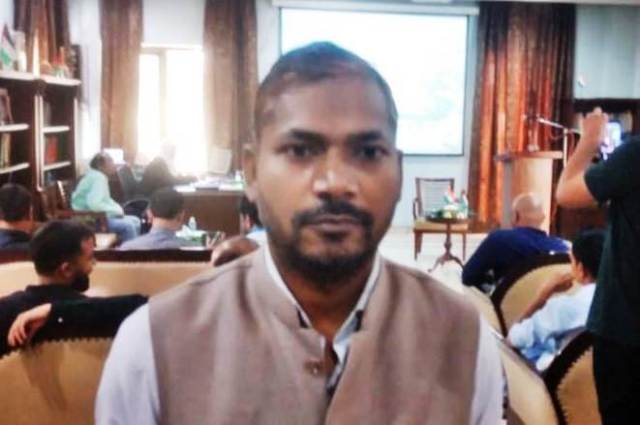
‘Waqf Act Was Forced Through Parliament Without Addressing Muslims’ Concerns’
Dr Shujaat Ali Quadri, who has been engaged in community service for the last 15 years, says There is lot of misinformation about the Waqf Act Amendments. His views:
The Waqf (Amendment) Act, 2025 has just been passed by the Indian Parliament after a stormy debate in both the Legislative Houses, and with the President of India granting her assent, it has now become an Act. Its stated intention is to abolish anomalies in the working of the Waqf boards and revive rightful utilisation of the Waqf properties which are purely charitable endowments made by Muslims for the welfare of the community, particularly, and society in general.
However, the way it has done away with the previous system and promulgated new reforms, Muslims feel it’s a ploy to snatch the Waqf, the most pivotal property asset of the community, by gradually taking its control and then slowly handing over Waqf properties to the government and thereon to the people or corporates who might exploit them for their use.
This Muslim concern emanates from some clauses in the new Act that tends to make the formation of Waqf Boards – the governing bodies of the Waqf – inclusive of non-Muslims and government-appointed members. The same will apply to the Central Waqf Council that keeps watch and advises the state Waqf boards.
Besides, the Act empowers the District Collector as arbiter to decide the status of a Waqf property, whether it is Waqf or not, since most of Waqf properties are sadly without proper land revenue records. It also eliminates the ‘Waqf by user’ clause that stipulated that any property in use for community welfare for a long time could automatically become Waqf.
A number of dargahs, graveyards and even mosques are such properties, and they face danger of being declared non-Waqf. They were given as charity for lifetime, but they lack proper documentation or legal records. Plus, all ASI-protected monuments (100 years and older) will cease to become Waqf properties.
There are more objectionable clauses in the Act, and this clearly stands to dis-empower Muslims. It, thereby, bolsters the agenda of the ruling BJP which wishes to show to its Hindu constituency that it is reversing the so-called ‘the Muslim appeasement’ done by previous regimes.
There is lot of misinformation about the new Waqf Amendment Bill. One popular myth is that Waqf properties will be revoked, but the fact is that no property that is legitimately declared as Waqf will be revoked. The other myth is that there will be no survey of Waqf properties. The fact is there will be a survey. The bill replaces the old role of the Survey Commissioner with the District Collector, who will conduct surveys using existing revenue procedures.
ALSO READ: No Doubt Muslims Are Feeling Unsafe: Farooq Abdullah
One of the most popular myths is that non-Muslims will become the majority in the Waqf Boards. The fact is that the bill requires at least two members on the Central Waqf Council and state boards to be non-Muslim. Thus, the majority of members will still be from the Muslim community.
So why did they introduce this Act now?
If we look at the BJP strategy 2014 onwards, it has timed all its legislative or political moves vis-a-vis Muslims with a deft sense of timing. The issue of Ram Mandir in Ayodhya that established the BJP as a political force was exploited by the party till 2024 when it was inaugurated just before the Lok Sabha polls. Similarly, other issues like those of Triple Talaq, love jihad, scarves worn by Muslim schoolgirls, madrasas, beef consumption, claim on mosques, etc, are orchestrated by Hindu hardliners so that it could shepherd Hindu votes in favour of the BJP.
The Waqf, like the Uniform Civil Code, was always on the BJP radar. It has introduced it now so that its divisive potential can be tapped in the upcoming Bihar elections and subsequent elections in other states.
So far, there is no concrete evidence that suggests that the properties belonging to the Buddhist muths, Jain religious sites or similar properties belonging to the Church could be the target of the ruling BJP. However, given the ideological streak of the party and its reliance on communal issues, it cannot be ruled out that might, sooner or later, choose to systematically target properties of such minorities.
In fact, Shiv Sena (UBT) chief Uddhav Thackeray has accused the BJP of planning to take control of land belonging to Christians, Jains, Buddhists, and even some Hindu temples, after passing the Waqf (Amendment) Bill, 2025. He was referring to to an article published in Organiser, the mouth-piece of the RSS, to support his claim. After Thackeray made it public, the article was taken down. However, it gives ample insight into the future which seems very bleak and disturbing.
(The narrator is the National Chairman of the Muslim Students Organization of India. He is a trained professional on cyber warfare, fake news, media and communication)
As told to Amit Sengupta

‘Social Media Addiction Is Turning Into A Mental Health Crisis’

‘Delhi AI Summit Was A Bitter Experience For Visitors & Participants Alike’

‘Trade Deals With US & EU Will Integrate India Into Global Economic Order’

‘Online Content Can Amplify Fantasy, Distort Realty; A Child May Not Process It’
Imp analysis, but it is also the fact that Waqf board are dominated by Upper caste Muslim. Jamiat, Jamat and Personal Law board are at the forefront of advocacy against the new waqf bill and preservation of the waqf properties. It is not merely hypocrisy, but an astute move by the Jamiat & Jamat to lay claim a rich treasure of properties that people and organizations affiliated to it have been in possession of. Even people manning most of the waqf boards in India have been connected to the Jamiat & Jamat. They were availing waqf benefits in the British period and continued to reap this easy yield through their shenanigans after Independence too. Their evil grip on waqf must be loosened to restore welfare of the poor for whom the waqf is ultimately meant for. Besides, as said earlier, the waqf is a matter of faith and practice for the Sufi, Barelwi and Shia Muslims. They have maintained syncretic traditions of India and the shrines maintained by them have been benefactors of all, especially the poor, irrespective of any creed, and thus the waqf must be restored to these true guardians of India’s syncretic values and patrons of the poor.
Lot of Propaganda is here on Waqf bill – One of the main distortions being peddled is the claim that the bill enables the government to seize legitimate waqf properties. In reality, the amendment merely empowers the District Collector to review misclassified properties, especially cases where government or private lands have been wrongly designated as waqf. This measure ensures rightful ownership and protects against fraudulent claims, benefiting both the community and the larger public interest.
Most important the waqf helped build educational, intellectual and public use buildings. A number of institutions in the Ottoman — 40,000 of them surviving even today — were built for the promotion of scholarship.
Al Azhar University in Cairo, Egypt, is one classical signature of waqf contribution. Similarly, sarais (free shelter houses) were built to help travelers and traders. In India, we see them in the form of musafir khanas (rest houses for travelers) in every big and small city
Nice write up, I am Just adding a Fact
When the Mughal rule ended and the British Raj sought to abolish the waqf after a Privy Council of London ruling, its own officers in India opposed it as it was serving the public well. So, the British-promulgated Mussalman Waqf Validating Act of 1913 saved the institution of waqf in India.
Beautifully crafted…
The discourse around waqf in India and the decisive politics of the BJP aimed at consolidating the majority vote bank is undeniably complex and deeply strategic. However, it is essential to acknowledge a sobering truth: despite its intended purpose of serving the underprivileged, waqf institutions in India have largely remained disconnected from the lives and struggles of the poor. Their potential as instruments of social upliftment has been overshadowed by bureaucratic inefficiencies, political manipulation, and a lack of transparency.
There are hundreds of properties in Old Delhi and elsewhere, whose rents are even below Rs 100 despite the fact that they are located in prime commercial areas where prevailing rent pricing is in lakhs of rupees. Dargahs and mosques under the board, including Jama Masjid of Delhi, are not under waqf control and the caretaker or the imam rules like a feudal lord.
Well penned.
Governance is the sole privilege of the government and it may appoint a person of any religion to the board of the waqf and may even channelise the board’s functioning through any of its concerned officials, it should not matter. What will matter is that the orphans, widows and other needy are deprived of their due for which people allotted their properties.